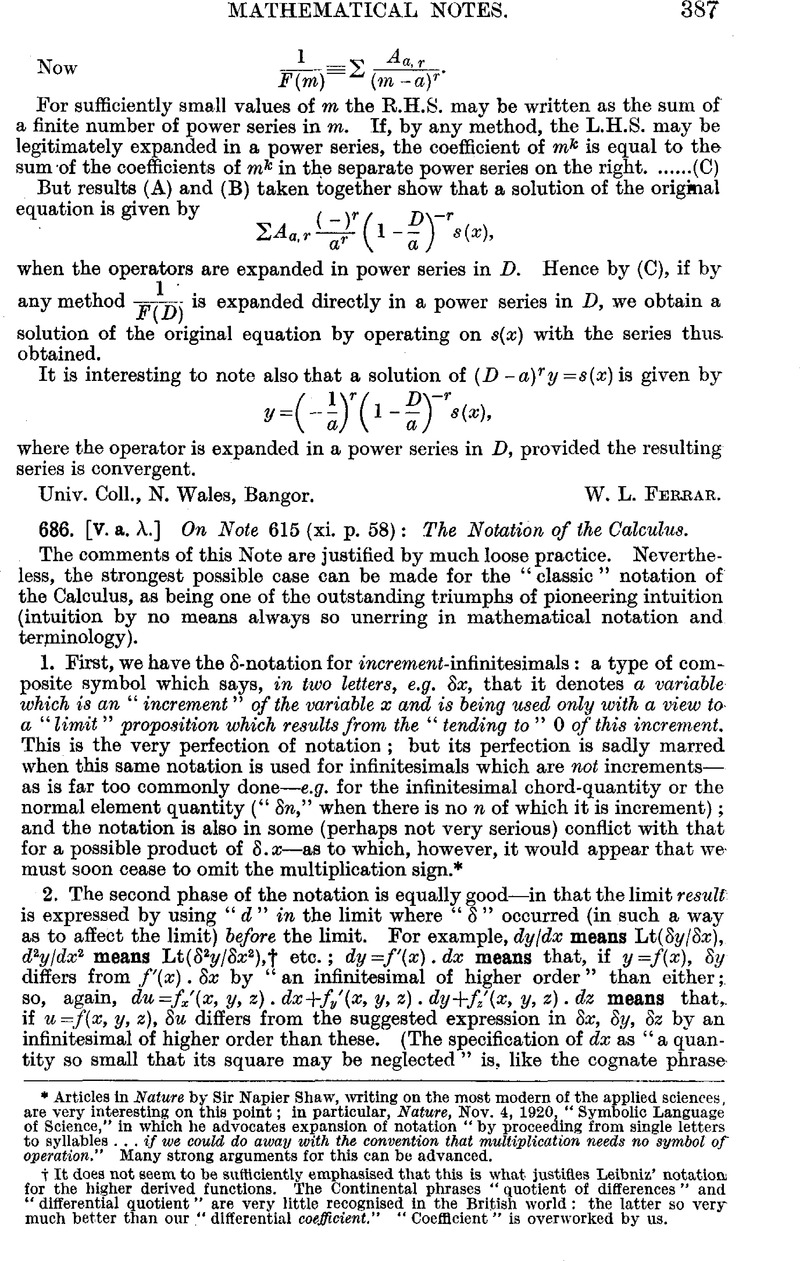No CrossRef data available.
Published online by Cambridge University Press: 03 November 2016

page 387 note * Articles in Nature by Sir Napier Shaw, writing on the most modern of the applied sciences, are very interesting on this point; in particular, Nature, Nov. 4, 1920, “Symbolic Language of Science,” in which he advocates expansion of notation “by proceeding from single letters to syllables… if we could do away with the convention that multiplication needs no symbol operation.” Many strong arguments for this can be advanced.
page 387 note † It does not seem to be sufficiently emphasised that this is what justifies Leibniz’ notation for the higher derived functions. The Continental phrases “quotient of differences” and “differential quotient” are very little recognised in the British world: the latter so very much better than our “differential coefficient.” “Coefficient” is overworked by us.
page 388 note * Each of these notations has its own use and value.